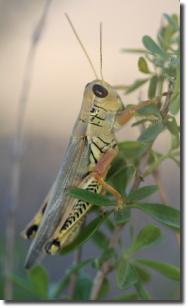Welcome to the Behmer Lab…
 The Insect Physiology & Behavior Research Group (IPBRG), headed by Spence Behmer, studies insect physiology and behavior, including their ecological and evolutionary bases. Our approach is “bottom-up”, with an emphasis on using individual behavior as a tool to understand physiological and higher-level processes. Recently we have also begun to use sequencing approaches to better understand physiological processes. Our lab pursues three broadly defined areas of research:
The Insect Physiology & Behavior Research Group (IPBRG), headed by Spence Behmer, studies insect physiology and behavior, including their ecological and evolutionary bases. Our approach is “bottom-up”, with an emphasis on using individual behavior as a tool to understand physiological and higher-level processes. Recently we have also begun to use sequencing approaches to better understand physiological processes. Our lab pursues three broadly defined areas of research:
1) physiological ecology
2) insect sterol (cholesterol) biology
3) mechanisms of learning
We use a number of different insects in our research, including grasshoppers, caterpillars, ants, Drosophila, and insects with sucking mouthparts (hemipterans).
Please explore our site and contact us if you have any questions. Prospective students and postdocs can click here to learn more about the lab.
Recent News and Announcements
July (2017) – Spence just returned from giving a talk at Toulouse University and at SIP16 in Tours.
May (2017) – Spence will be heading to China to visit Northwest A&F University, Huazhong Agricultural University and the Institute of Zoology (Beijing).
March (2017) – Spence is giving a talk at the BExME workshop at Penn State University.
February (2017) – Spence is attending the Gordon Research Conference on
Plant-Herbivore Interactions (Ventura, CA). He is the Vice Chair for the 2017
meeting, and the Chair for the 2019 meeting.
February (2017) – Congrats to Richelle Marquess for winning the Department of Entomology MS Student of the Year Award!!
January (2017) – Our paper on nutrition mediating insect susciptibility to Bt toxins is now available (published in Scientific Reports)! We believe this is a very important paper.
December (2016) – We have another paper out (in the Journal of Insect Physiology) related to our NSF-funded life-history trade-off research. This paper is on lipogenesis across different nutritional environments.
November (2016) – Our paper on nutrition as a neglected factor in insect herbivore
susceptibility to Bt toxins is out (Current Opinion in Insect Science).
October (2016) – Congratulations to Richelle Marquess on a successful thesis defense!
Deans, C.A., Behmer, S.T., Tessnow, A.E., Tamez-Guerra, P., Pusztai-Carey, M. and Sword, G.A.
(2017) Nutrition affects insect susceptibility to Bt toxins. Scientific Reports 7, 39705. [pdf]
Key Publications and Features
Roeder, K.A. and Behmer, S.T. (2014) Lifetime consequences of food protein-carbohydrate
content for an insect herbivore. Functional Ecology 28, 1135-1143. [pdf]
Joern, A., Provin, T. and Behmer, S.T. (2012) Not just the usual suspects: Insect herbivore
populations and communities are associated with multiple plant nutrients.
Ecology 93, 1002-1015. [pdf]
Behmer, S.T. and Joern, A. (2012) Insect herbivores viewed through a physiological
framework: insights from Orthoptera. In Insect Outbreaks Revisited (eds. P. Barbosa,
D.K. Letourneau and A.A. Agrawal), pp 3-29. Wiley-Blackwell, Chichester, U.K. [pdf]
Behmer, S.T. (2009) Insect herbivore nutrient regulation. Annual Review of
Entomology 54, 165-187. (click here for a free pdf)
Behmer, S.T. and Joern, A. (2008) Coexisting generalist herbivores occupy unique
nutritional feeding niches. Proceedings of the National Academy of Sciences,
USA 105, 1977-1982. [pdf]
For a full list of publications, click here...
To learn about research that is in the news visit our media section…